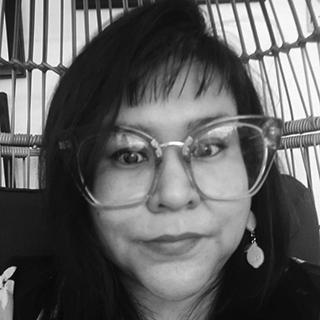Language Studies: ‘Wiishmenok /to love /to like/to want
First, begin with the glottal stop. I learn
it is more of a letter than a punctuation. Hide
your tongue /monoongen/ let the air escape
your mouth / motoongen/ A push—
of muscle. A catch in your throat/ mongoong /
‘Eyooshiraaw’nga/ In our language / it’s hard to hide
the self–your relations. Body
parts require prefixes. The Tongva language
asks, who does this tongue belong to? Whose
mouth speaks?
The definition comes easily because
‘Wiishmenok sounds like wish, a cousin to want
or like that could lead to desire or love.
Wiishmenokre / I love you. / One word equals
a sentence. The “re” is both the I
and the you; the lover and the loved
in two letters, side by side. But context matters.
Wiishemokre / I want you / I desire you—
What could your lover mean? What could they hide
in this language? Nay’ wiishemokne
neshiiro’a / But I love my language. / I can become
a translation of my own desire.
Wiishemokne menee’ / I love this—
that this word can be smushedagainst
others. Say to your lover: Shiraaw’shmenokne / I want to talk.
Add the shiraaw/ talk / in front of the shmenok/ want. / End it with the /ne/ I.
Let your tone do the rest.
We could smush more words together.
Háwtok / Perhaps / at the end
of the night, you might say: Miishmenokne / I want to go—
Or: chwiishkeshmenokre / I want to kiss you.
End your night with all your wants. The lesson is done.
Copyright © 2025 by Casandra López. Originally published in Poem-a-Day on November 27, 2025, by the Academy of American Poets.
“This poem is about my favorite word in my traditional language. I have been studying the Tongva language for a few years. It has been challenging, but it also brings me a lot of joy. The language is constantly teaching me about my culture and myself. In the language, body parts must belong to someone, which is not how the English language works. These concepts embedded in the language reinforce ideas I already believe in or teach me something new. ‘Wiishmenok is a unique word in the Tongva language, and I had fun playing with it.”
—Casandra López

